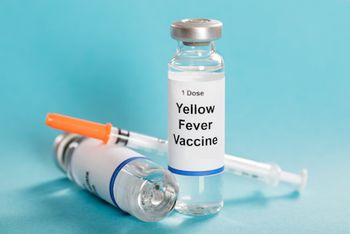
A new vaccine for yellow fever is now available in the United States, as health officials report outbreaks in Brazil and Angola continue to grow.

A new vaccine for yellow fever is now available in the United States, as health officials report outbreaks in Brazil and Angola continue to grow.

The World Health Organization (WHO) recently appointed its first African Director-General during general assembly, amidst controversy over travel expenditures.
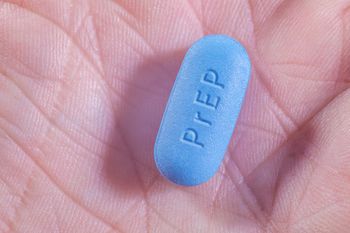
Findings presented at the 2017 Pediatric Academic Societies Meeting show that this HIV prevention treatment appears to cause loss in bone denisty in young males. However, alternatives may be available.
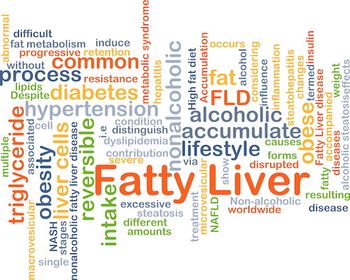
Not much is known about how HIV mono-infection contributes to the development of hepatic steatosis, due to how difficult diagnosis of this condition used to be. Now, with the developement of noninvasive tools, it is easier to diagnose steatosis.

As the Ebola outbreak in the Democratic Republic of Congo holds steady at 2 confirmed and 3 probable cases, the Ministry of Health has approved the administration of an experimental vaccine against the virus.

Research presented at the 2017 American Thoracic Society International Conference reports that treatment with antibiotics failed in 1 in 4 adult patients who present with community-acquired pneumonia in the outpatient setting.

Johns Hopkins Armstrong Institute of Patient Safety and Quality researchers have shown that by adhering to evidence-based practices, frontline healthcare staff members can reduce ventilator-associated events.

Research presented at Digestive Disease Week examines the factors that contribute to effectiveness of HCV treatment.

By impairing brain connectivity, an HIV infection may affect cognition in young patients, according to a recent imaging study.

A research team headed by Carl D’Angio, MD, a physician in the Department of Pediatrics at the University of Rochester Medical Center in Rochester, New York, compare flu vaccine response in PT versus FT infants.

In the recent installment of the series, “We Were There,” the Centers for Disease Control and Prevention share what they have learned since the 1993 Escherichia coli (E. coli) outbreak.
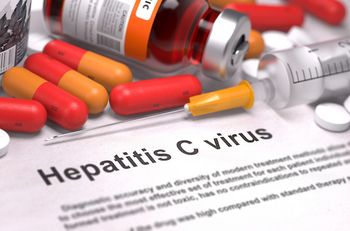
The lack of availability of generic DAAs in many other parts of the world increases prices and often limits treatment to people with later stages of the disease.

The quality improvement group at the UNC Infectious Disease Clinic has come up with a process to increase rates of STD screening that includes providing patients with the option to self-swab.
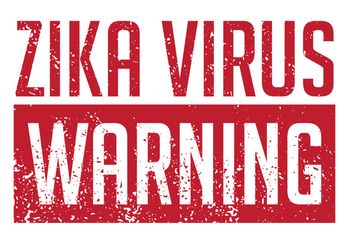
After 3 individuals test positive for the mosquito-borne virus in Gujarat, WHO confirms that the Zika virus is currently circulating in the country.

Research published in Nature on May 24, suggests that the Zika virus has been circulating in the Americas silently for far longer than previously thought.

The key to meeting the Joint United Nations Program on HIV and AIDS (UNAIDS) benchmark may be to combine discrete areas of research into a more cohesive strategy.

Researchers from the University of Toronto evaluated 82 patients under 18 years of age from Toronto, Ottawa, Montreal, and Quebec.
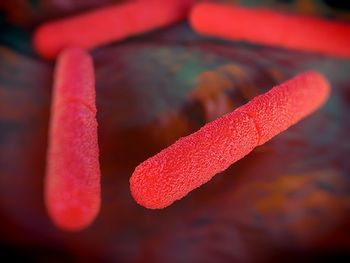
An outbreak associated with a rare, paralytic illness has hospitalized several individuals and claimed one life thus far.

The Congressional Budget Office (CBO) finally released their "score" of the American Health Care Act (AHCA) and we take a look at the highlights.

As health departments around the country continue to report new West Nile virus activity, a new study explores how the brain protects itself from this and other mosquito-borne viruses.

Physicians call for more education for themselves and the patient before recommending the use of topical microbicides.
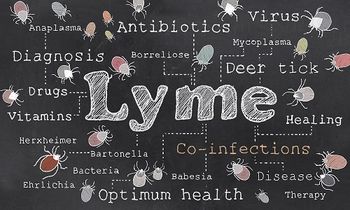
Lyme Disease Association President, Pat Smith, takes on the major problems surrounding Lyme disease today.

While the 2016 Ebola outbreak in the Democratic Republic of Congo continues to unfold, researchers have identified the first natural human antibodies against all three major disease-causing ebolaviruses.

Researchers believe that an increased incidence of C. difficile in travelers returning from international destinations may be linked to travelers' diarrhea.

At the 2017 Annual Pediatric Academic Societies meeting, Gail Bolan, MD, from the CDC, explained why trends in STD reporting in 2015 may be disturbing.

Yemen has been hit by a resurgent cholera outbreak and health officials are focusing all of their efforts into infection control.
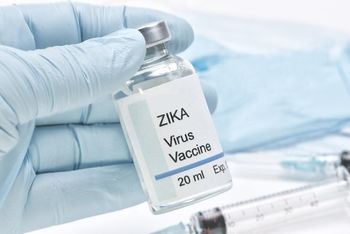
Researchers from Beaumont hospital have developed a Zika virus diagnostic test that yields quick results. In addition, a Zika vaccine may be coming our way, but perhaps not in the way we hoped.

A study conducted in France found that many pediatrics patients in the western region of the country are dying of vaccine-preventable diseases, and not because they’re not receiving vaccination.

In a research panel at the 2017 Annual Pediatric Academic Societies Meeting, Andres Camacho-Gonzalez, MD, and Craig Wilson, MD, discussed how poorly-controlled HIV infections in adolescents are related to increased risk of other STIs.